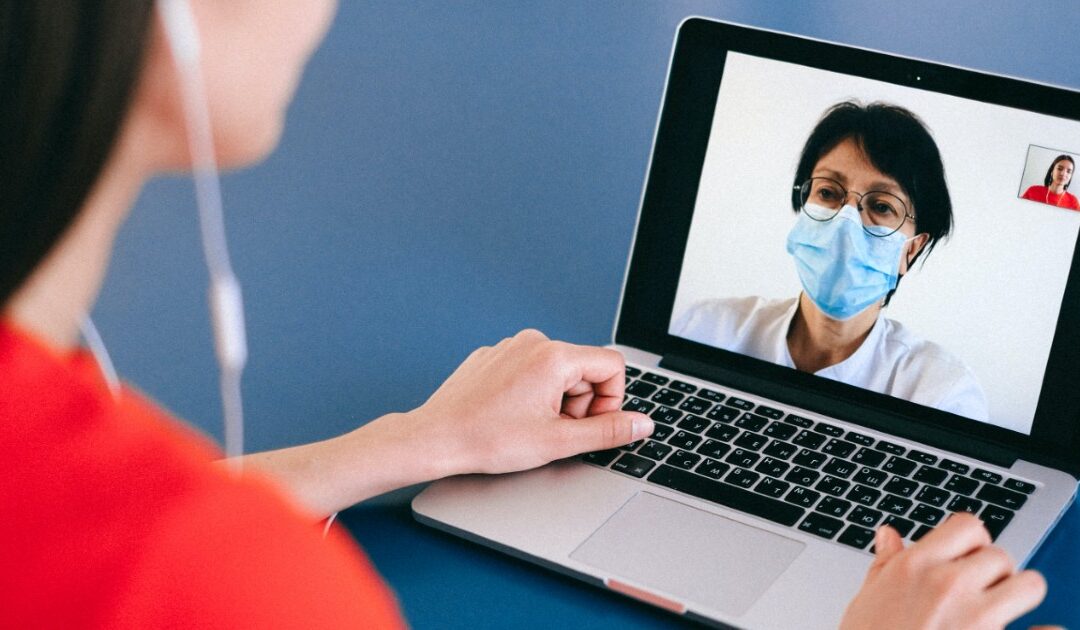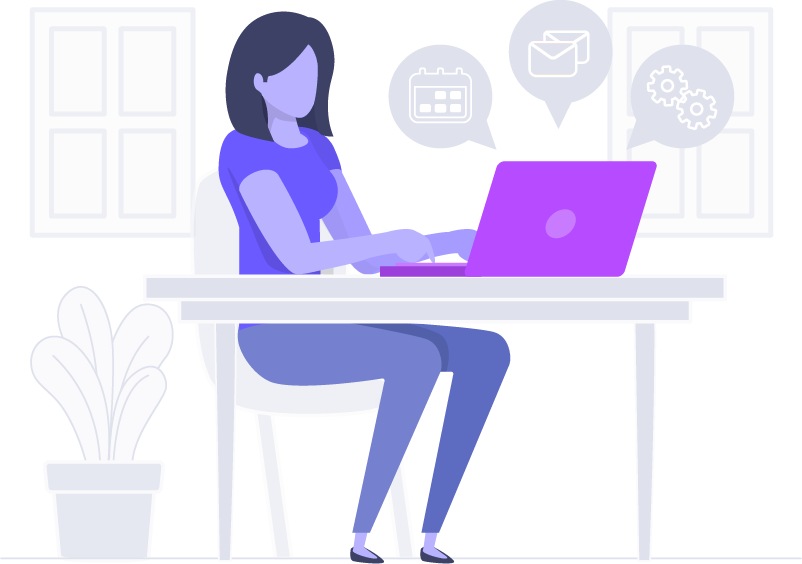
by Philip Payne | Feb 19, 2021 | Tele-Behavioral Health Series
I’d like to familiarize everyone with what tele-behavioral health is so that you can have a meaningful reading experience. Tele-behavioral health is the process of providing behavioral therapy or psychotherapy remotely, utilizing video conferencing or text-based messaging. Millions of people’s mental health needs have been addressed by the means of tele-behavioral health, and I’d like you all to be aware of this valuable resource.
Tele-behavioral health is not subject to any one specific group of people; It is a universal resource. It does not discriminate against geographic location, income level, age, race, ethnicity, gender identity, nor sexual orientation. Tele-behavioral health has become a common tool that can be employed by anyone.
I have many friends that have found relief and guidance in tele-behavioral health resources, especially during the pandemic. Not only can they receive the necessary help they need, but they can do so at a distance. With the technology of tele-behavioral health, my friends who attend college away from home are able to not only maintain but improve their mental health with their primary caregiver. They can easily be connected on their phone, tablet, or computer anywhere to address their emergent needs. College students are just one demographic that can benefit from tele-behavioral health.
You may not know that even our homeless population can access tele-behavioral health support. Specifically, agencies who utilize our Apportis platform can connect tele-behavioral health professionals with homeless individuals as our solution does not need Wi-Fi to function. Oftentimes, these homeless men, women, and children’s mental illnesses are heightened by their stressful living situation, so tele-behavioral health is a vital resource for them to have access to.
At Apportis, we are continuously working with agencies and organizations to help connect tele-behavioral health services with those in need. Tele-behavioral health has become a new norm in our society, and we are here to be a leader in those developments.

by Philip Payne | Feb 12, 2021 | Tele-Behavioral Health Series
Hopefully you have read our last blog (Tele-Medicine vs. Tele-Behavioral Health), so you understand more about Apportis’s tele-behavioral health platform. We have all had good and bad days that come and go, but there is no reason why a serious long-term mental illness should be left unaddressed. It is no secret that the pandemic has been difficult for everyone. Most of us have experienced isolation, loss, depression, anxiety and even panic and regret. I, too, have felt these hardships, so it is important to know that we are not alone in those feelings.
That is why our Apportis team is dedicated to providing software to agencies that deliver social services and behavioral health. Our platform is easily accessible whether you are a student struggling at home, a farmer experiencing difficulties in your rural community, a homeless individual without a warm shelter, etc. There are no bounds to our efforts to connect with agencies that can help those in need.
Let me provide you with an example of how easily our platform connects people with the services they need:
Older individuals in our population are especially vulnerable during these times of crisis, so many are relying on virtual healthcare and means of communication. An older individual in need of behavioral healthcare can easily be connected with a tele-behavioral health professional through an agency or organization of their choice who utilizes Apportis’s software. They can then receive help from the safety of their own home. This also means they can avoid physical contact with possible infections, including COVID-19, that are spread throughout hospitals and doctors’ offices. Aside from COVID-19, they can also get help safely by avoiding the icy roads and sidewalks that come with winter weather.
That is just one example of who Apportis’s platform can serve. As a college student, it comforts me to know that any university can use Apportis’s software for their students and faculty. I understand the stressful demands that come with earning a college degree, so I encourage universities to utilize our behavioral health resource to care for their students’ health and wellness.
The need for tele-behavioral health has grown exponentially since the development of the COVID-19 Pandemic. Apportis is here to tailor our software platform so that agencies can meet the specific needs of those they serve, including you!

by Philip Payne | Feb 5, 2021 | Tele-Behavioral Health Series
Tele-medicine and tele-behavioral health have become prevalent terms in society’s everyday life, but what do they mean? The demand for virtual health care options has risen exponentially in recent years, and many of us don’t know the difference between these two terms. In my personal experience, I used to glaze over these terms simply because ‘I had an idea of what they meant.’ However, knowing what they are has proven to be of value because I can make educated decisions about my family’s and my necessary care.
Tele-Medicine: “Medical care provided remotely to a patient in a separate location using two-way voice and visual communication (as by computer or cell phone)” (Merriam-Webster.com Dictionary)
Tele-Behavioral Health: The process of providing behavioral therapy or psychotherapy remotely, utilizing video conferencing or text-based messaging
Essentially, tele-behavioral health is a sub-category of the broader tele-medicine scope. It focuses more directly on behavioral health disorders, such as anxiety, depression, and PTSD to name a few. The National Institute of Mental Health reports, “In 2019, there were an estimated 51.5 million adults aged 18 or older in the United States with AMI (a mental illness). This number represented 20.6% of all U.S. adults” (National Institute of Mental Health). I have tried my best to help my friends with their mental health challenges – but sometimes a friend’s loving advice just isn’t enough.
As a result, the importance of tele-behavioral health has grown with the increasing prevalence of mental health challenges and substance use disorders around the world. This form of healthcare can be accessed by anyone to provide them with the critical help they need.
At Apportis, we provide a HIPPA-certified tele-behavioral health platform to communities in need. Our software removes barriers to connect counselors, case managers, caregivers, and clinicians to those in need, and it provides that community with resources to thrive. Anyone can receive behavioral health advice through the Apportis software without the need of Wi-Fi. This means that we can assist those in urban, rural, and even homeless communities for their behavioral health needs.
We encourage everyone to learn more about tele-medicine and tele-behavioral health because we understand that everyone lives with their own challenges. You can read more blogs about the previously mentioned topics, in addition to various other health-related subjects, on our website Apportis.com under the “BLOG” tab. We would love to assist you with your behavioral health needs, so please contact us with any inquires and questions you may have. We can make an impact together in tele-behavioral healthcare!
National Institute of Mental Health. “Mental Illness.” National Institute of Mental Health, U.S. Department of Health and Human Services, Jan. 2021, www.nimh.nih.gov/health/statistics/mental-illness.shtml.
“Telemedicine.” Merriam-Webster.com Dictionary, Merriam-Webster, https://www.merriam-webster.com/dictionary/telemedicine. Accessed 31 Jan. 2021.

by admin | May 20, 2020 | Womens Health Month
I’m writing today to encourage & share the importance of yearly exams that includes a full blood work panel, OBGYN visits, mental health checks, heart health, and in any uncertainty if you’re not feeling status-quo, to go to a doctor.
I’m glad I get to write on this as I love researching the intricate and complicated gift that we call our body. WebMD and I have had a relationship for as long as I can remember plus a really great doctor I relied on. What happens to those that don’t have a doctor and or don’t know where to find trusted sources for their health?
Well, that scary time came for me about 10 years ago but that’s also when Hannah 2.0 was born!
I know everyone has their own interpretation of holistic health, but I’m sharing mine and this definition: Holistic Health is actually an approach to life. Rather than focusing on illness or specific parts of the body, this ancient approach to health considers the whole person and how he or she interacts with his or her environment. It emphasizes the connection of mind, body and spirit.
I guess my journey on holistic health began when I moved to Texas after being down-sized from a job, and in the transition of moving and finding a new job, I didn’t have insurance. The first week I was there I somehow twisted my knee and it was painful! Someone had told me to try out acupuncture. At this point I was open to trying anything, so I found one with great reviews & I went. I had a fixed knee, reduced allergies, more optimism, sugar cravings reduced, slept better…all things I discovered that acupuncture could help with. I felt amazing. I got started using essential oils, teas, meditation, Reiki & Chakra work, supplements, yoga and exercises that specifically enhanced my mind as well as my body. During this holistic journey, I was also introduced to one of my favorite authors, Louise L. Hay.
Cliff notes version of her book, “You Can Heal Your Life,” states with the right mental energy and affirmations, you can heal the physical ailments you experience. During my stent without insurance, I learned to rely on easy things I could do to help me stay in good health:
Eat healthy.
Get that heart rate up. Be active, even if it’s just a walk.
Be thankful for at least one thing a day (by the way, you can cheat and just be thankful for waking up to do this exercise).
Find something that makes you smile, and better yet, laugh.
Join a women’s health cause, learn and be a volunteer.
Read so you can learn how to be the best you full circle.
Love yourself and by doing all of this, you sure are.
Without your health, you are not able to live fully in most cases. Since we are all predestined with a reason for existence, then health is the most important to focus on so you can find and or continue to experience your fulfillment. You take care of yourself first. Family, kids, job, animals…they will have to figure it out if you are not here so lead by example and take care of you. If physical health is in check and you are just not happy with who you are now, find out why.
Everything is rooted within your mental health but I believe it does manifest itself physically.
Whatever you’re facing, take care of you on all accounts. Learn more about nutrition, holistic health, keep those doctor’s appointments current, talk to someone you can trust, vitamins are a good thing and just continue to live life in moderation and you will see & feel the difference. “I allow the healing power in my body to manifest perfect health.” – Louise L. Hay
by Eric Ulchakere | May 20, 2020 | Mental Health
Ohio State Basketball star-freshman, DJ Carton, has decided to put his career on pause to focus on working through ongoing mental health issues. Carton said in a public announcement “If you’re going through mental health issues, I have learned through this that you are loved and valued.” This is an extremely mature and profound statement from the 19 year old student athlete.
It is common place for college students to feel overwhelmed by their workload. Add competing as a NCAA D1 athlete to a preexisting condition, and it’s no wonder Carton feels the need to work on himself. Far too often undergraduates are inundated with stressors that result in anxiety, depression, etc. However, less that 25 percent of people with depression receive adequate care. It is time for universities to take responsibility and offer a tool to their students to help cope with the mental health crisis today’s young people are facing.
The core of Ohio State’s mission is the Research and Development of products that help the university and can be shared with the community. This is why Apportis has began engagements with OSU’s Smart Cities Initiative. We are working towards piloting our telemental health technology, so that OSU students have a tool to access providers at their time of need. Our solution will enable the university’s Counseling and Consultation Service to reach students in their exact Moment of Readiness™.
Full article: https://www.espn.com/mens-college-basketball/story/_/id/28602887/ohio-state-dj-carton-takes-leave-cites-mental-health





Recent Comments